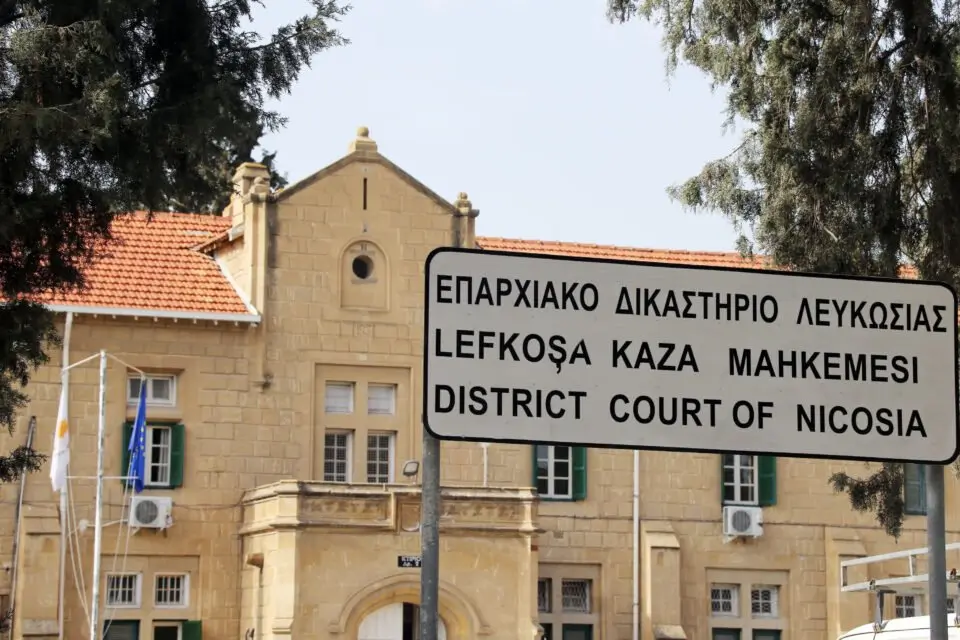Monday’s court hearing regarding the three people facing criminal charges over a report by news company Al Jazeera into the alleged illegal naturalisations of people as citizens of the Republic of Cyprus, commonly known as the ‘golden passports scandal’, focused on technicalities and fine details of how the case will proceed.
Former House president Demetris Syllouris, former Akel MP Christakis Giovanis, and senior lawyer for the Giovanis Group Antonis Antoniou are facing charges, including conspiracy to subvert the Republic and influencing a public official in violation of the laws criminalising corruption.
The day began with the prosecution requesting that one of the witnesses be able to testify via videoconference, as the witness in question resides in the United Kingdom and was deemed unable to fly to Cyprus due to medical reasons.
It also said that this would be done in cooperation with the British authorities.
However, defence lawyer Chris Triantafyllides said the medical certificate submitted was dated October 7, and that as such, the witness’ circumstances may have since changed. He requested further information on the matter.
All three defendants’ lawyers said they would file an objection to the request, with judge Nikolas Georgiades saying the request would be heard at the case’s next hearing on February 3.
The prosecution then called three witnesses to the stand, an employee of the information services department who has access to the civil registry department’s database, and two police sergeants.
The information services department employee testified that the biometric data of former chief of Russian multinational energy corporation Gazprom Nikolay Gornovskiy had been taken by the civil registry department on June 20, 2019.
Gornovskiy is on Russia’s wanted list for corruption and abusing power but was nonetheless naturalised.
The first police sergeant then presented a series of photographs he had received from an interior ministry employee, while the second presented evidence related to the case received from the police.
This information included files from the interior ministry and the finance ministry related to Gornovskiy’s naturalisation, a statement given by Antonis Antoniou, and data extracted from a bank account belonging to the George F. Pittadjis law firm – the firm of which former defendant and current defence lawyer Andreas Pittadjis is a director.
The defence lawyers then objected to a deposition of evidence taken from the home of British estate agent Anthony William Kay in Paralimni.
The objection centred on a computer found at the home, with lawyer George Papaioannou saying he reserves the right to object if the computer’s content constitutes inadmissible testimony.
Andreas Pittadjis argued that the computer can be submitted without its contents, but that if it would be submitted alongside its contents, “hundreds of thousands of documents of which the relevance, admissibility, and content we as a defence do not known” may be indirectly submitted to court.
Prosecution lawyer Charis Karaolidou argued that the computer’s relevance is “intertwined” with the evidence submitted by Kay, as he has “personal knowledge of the facts of the case” and his testimony “also refers to elements which are directly related to the computer”.
The court as such accepted that the computer be submitted as evidence, saying it was “part of the chain of evidence”, while other documents found in Kay’s house were submitted as evidence without objection.
The hearing scheduled for this Wednesday was thus cancelled to give the defence time to examine evidence which will be submitted by the prosecution on Tuesday, with the next hearing now set to take place on February 3.
Al Jazeera aired an almost hour-long expose of the scandal in October 2020, prompting Syllouris and Giovanis to both resign.
In the documentary, undercover reporters played the role of agents acting on behalf of a fictional Chinese businessman with a criminal record, aiming to secure him Cypriot citizenship.
Syllouris, Giovanis and others were shown offering to help the man in his quest for citizenship despite his criminal record.
The government of the day then scrapped Cyprus’ citizenship by investment scheme, with the European Union having launched legal proceedings over claims the scheme had been used to sell passports to dubious individuals.
A subsequent inquiry found that 53 per cent of 6,779 citizenships granted through the scheme were unlawful, with the government since having commenced the process of cancelling the citizenship of some naturalised through the scheme.






Click here to change your cookie preferences